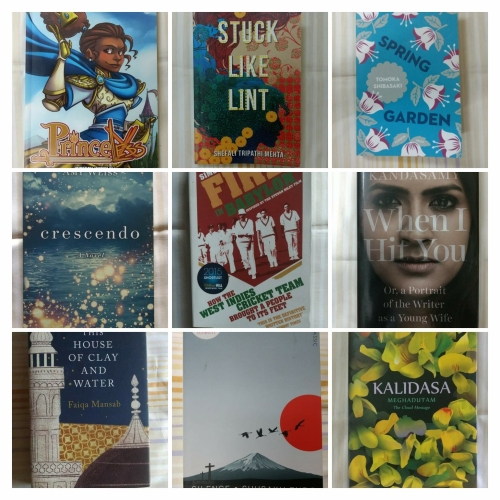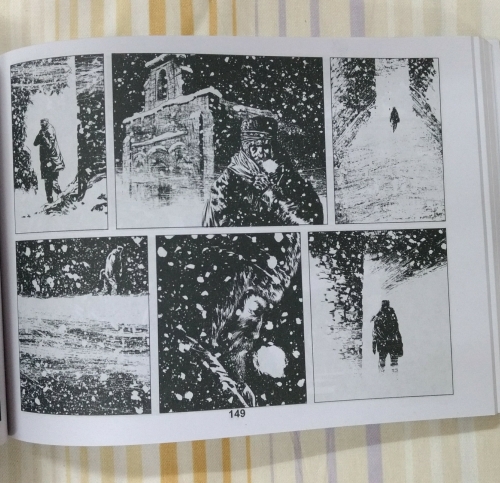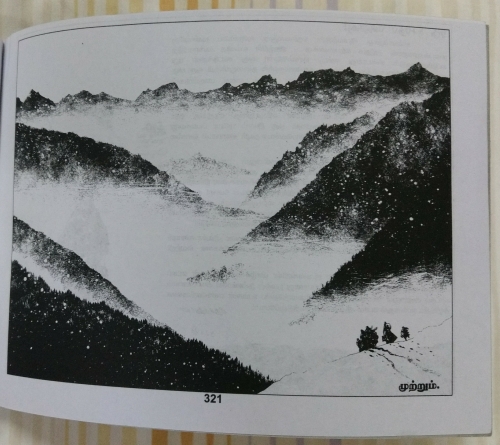Anne Fadiman is one of my favourite writers. Her essay collection ‘Ex Libris‘ is one of my alltime favourite books. But unfortunately her literary output is very thin. Anne Fadiman is like the J.D.Salinger or Harper Lee of our times. There are two essay collections, ‘Ex Libris‘ and ‘At Large and At Small’, and one non-fiction book about the Hmong community called ‘The Spirit Catches You and You Fall Down‘, in her backlist. She has also edited two essay collections, ‘Rereadings : Seventeen Writers Revisit Books They Love’ and ‘The Best American Essays 2003’. I have seen an introduction by her in another book, whose title I can’t remember. That is all there is. Three books, two edited collections, and one essay somewhere. It is slim. It makes Anne Fadiman fans like me yearn for more, everyday. So any new Anne Fadiman book is an event. When I discovered that Anne Fadiman’s new book was coming out, I was so excited. It was called ‘The Wine Lover’s Daughter’ and it was a memoir about her father. When I got the book and held it in my hands, I was so happy. I read it slowly over the last week and finished reading it yesterday.

‘The Wine Lover’s Daughter’ is mostly about Anne Fadiman’s father Clifton Fadiman. Clifton Fadiman was a famous writer of his era. He mostly wrote essays and edited anthologies. He was the editor-in-chief at Simon and Schuster, a book reviewer for The New Yorker, was part of the Book-of-the-Month club, was on the Board of the Encyclopedia Britannica, was a radio host of a programme on books, and also anchored a literary quiz show on television. He was also a lover of wine. In the book, Anne Fadiman talks about how her father started from humble beginnings as part of an East European Jewish immigrant family, how he fell in love with books when he was a kid, a love affair which lasted for his whole life, how he faced discrimination at different times because of his Jewish background, how he tried to escape from his Jewish background and become a regular WASP intellectual, and which led to his fascination and love for wine, which became another of his lifelong love affairs. Anne Fadiman also talks about her own relationship with her father, about her own ambiguous relationship with wine, and during the course of the book she takes our hand and leads us into the Fadiman house where we get to hear private conversations between the family members, their thoughts and feelings and their points of view, and understand the fascinating, affectionate, complex relationships between them. On the way, Anne Fadiman dedicates a chapter to her mother, who was an accomplished person too and was a war correspondent in the Far East before she got married to Clifton Fadiman. That chapter made me want to read more about Anne Fadiman’s mother, Annalee Whitmore Jacoby Fadiman. There are some anecdotes in the book involving famous people, including P.L.Travers, Ernest Hemingway and M.F.K.Fisher. They were all interesting to read.

Though the book is a memoir, it is also about the love for wine. It describes how Anne Fadiman’s father first discovered wine and how he developed a lifelong love for it. This is what the book says about the first time he tried wine.
He always said this first taste felt less like a new experience than like an old one that had been waiting all his life for him to catch up to it. He tried to describe it by analogy – it was like Plato’s doctrine of reminiscence, or like the moment when the hero of Conrad’s “Youth” reaches the East, or like Napoleon’s realization that he was born to be a soldier – but invariably fell back on the language of eros. The Graves spoke to him : “I am your fate. You are mine. Love me.”
In another place, Anne Fadiman talks about her father’s love for wine. Here is how it goes.
Aside from books, he loved nothing – and no one – longer, more ardently, or more faithfully than he loved wine.
These were some of his reasons.
Wine provided sensory pleasures equaled only by sex.
Wine was complex. “Water and milk,” he wrote, “may be excellent drinks, but their charms are repetitive. God granted them swallowability, and rested.”
Wine was various, both in its chemistry (alcoholic content, sugar, iron, tannins) and in its moods (champagne for celebration, port for consolation).
Wine was companionable. “A bottle of wine begs to be shared,” he wrote. “I have never met a miserly wine lover.”
This list goes on for the next couple of pages.
In another page, Anne Fadiman describes what her father says about how wine ages across the years.
My father wrote that wine is “not dead matter, like a motorcar, but a live thing.” It moves through the same life cycle as a human being : infancy, youth, prime, old age, senescence. Unfortified wines have shorter life spans than Madeira, but a great red wine, properly stored, can last a century, evolving with each passing decade. It’s not like a bottle of Coca-Cola or vodka, exactly the same no matter when you open it.
When Clifton Fadiman’s eightieth birthday was celebrated by his family and friends, the invite contained a facsimile of The New York Times from the day of his birth, with a news item about his birth ‘Clifton Fadiman born : Brooklyn stunned by great event.‘ Below that was this description :
“Fadiman’s mother, Grace, was heard to complain that her son had turned down a bottle of milk and asked instead for a bottle of Château Mouton Rothschild ’29. His father, Isadore, explained that this request would be difficult to fill because it was only 1904.”
That passage made me smile 🙂
There are many interesting facts about wine in the book, most of them well known to wine lovers. But if you are like me, you might like these three.
“We can still drink port and sherry from the nineteenth century because they are fortified wines, infused with brandy to halt fermentation.”
“With the exception of sweet dessert wines, white wines are less durable because the tannin-rich grape skins are removed from the juice before fermentation – which is also why they’re white, since the juice of all grapes, both red and white, is nearly colorless; it’s the skins that provide the pigment.”
“We tasted the wine. I thought it would be strong and sour (a word shunned by wine connoisseurs – they call it dry).”
The book mentions many famous wines like Château Mouton Rothschild ’29, Château Lafite Rothschild 1904, Haut-Brion, Madeira 1835. It mentions Premier Cru and Grand Cru wines. It mentions Bordeaux and Burgundys. If you love wines and these names mean something to you, reading about them will give you goosebumps.
Though Anne Fadiman mostly says nice things about her father, and shares her love for him with us readers, she doesn’t shy away from his flaws. For example, in one place she says this :
“My father was a male chauvinist. He liked women – relished them, studied them, adored them. As a good progressive…he supported the Equal Rights Amendment…But that didn’t stop him from being reflexively condescending…He asserted that although they were better drivers…women are not as good at conversation and they know absolutely nothing about wine…he continued to make jokes about the bird-witted literary tastes of housewives; to call women “girls”; and, in both speech and writing, to use “he” when he meant “he or she”…My father believed there were certain things only a man should do. Earn more than his spouse. Pay the check at a restaurant. Hold the tickets at an airport. Be the last through a door. Tell the taxi driver where to go. Repeat an off-color joke.”
I admired Anne Fadiman for saying that.
Two-thirds into the book, Anne Fadiman spends a whole chapter on how her father became blind in his old age. When her father realizes that he wouldn’t be able to see again, he has a conversation with her. This is how it goes.
“He told me there were two reasons his life was no longer worth living : he would burden my mother, and he couldn’t read. He asked if I would help him die.”
When I read that, I cried. That is the worst thing that can happen to a book lover – losing sight. It was heartbreaking to read.
The book has notes in the end and a reasonably long acknowledgement section. Like in any Anne Fadiman book, these are beautiful, charming, informative and heartwarming. Fadiman writes the best acknowledgement pages.
Well, we have reached the end of this review now. Or nearly there. ‘The Wine Lover’s Daughter‘ is a beautiful book. It is vintage Anne Fadiman. It is about love, family, parents and children, and friendship. It is also an ode to books and reading, and a love letter to wine. If you like memoirs, wine, Anne Fadiman’s books, or some or all of these, this book is a must read.
I will leave you with a couple of my favourite passages from the book.
“When you reread a classic you do not see more in the book than you did before; you see more in you than there was before.”
“Relationships with parents wax and wane, following their own natural cycles. I was fortunate to have loved both my parents, and been loved by both, but I sometimes felt closer to one and sometimes to the other. In college, when I was studying English literature, I felt closer to my father. In my twenties and thirties, when I was working as a reporter, I felt closer to my mother. In my early forties, when I started to write essays, the tide turned back in my father’s direction. Essays were his territory, and I might never have ventured over the border if I hadn’t been confined to bed during eight months of Henry’s gestation and obliged to find a literary genre that could be executed from a horizontal position. But something else had changed too. There comes a point when oaklings outgrow the diminutive and stop worrying about withering beneath the shadow of the oak. I no longer bristled – a slight sigh sufficed – when I was told, “You’re following in your father’s footsteps” or “You have your father’s genes.” He had my genes, too. There has been a time when nothing would have pleased me more than to be better known than he was, but as he grew frailer, I started to worry that someday this might actually happen. If my father were forgotten, the balance of my world would shift so disorientingly that I’d lose my footing. I still check periodically to make sure he has more Google entries than I do.”
Have you read ‘The Wine Lover’s Daughter‘? What do you think about it? Have you read other Anne Fadiman books?
Read Full Post »


















